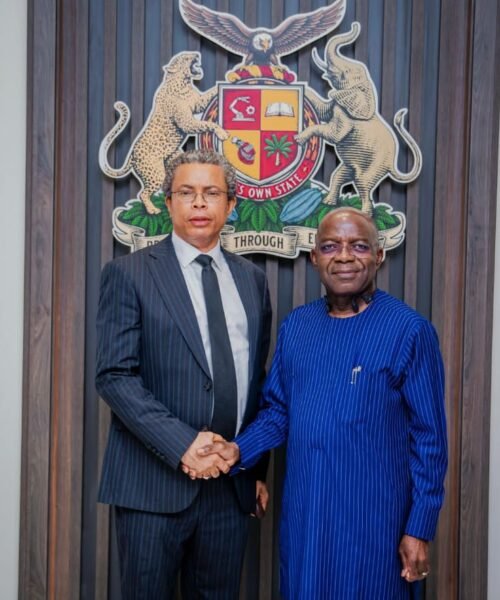Governor Alex Otti’s Efforts to Stem the Tide Against the Girl Child in Abia State
Governor Alex Otti’s administration has prioritized addressing systemic barriers to girls’ education and empowerment in Abia State, aligning with Nigeria’s broader demographic and gender equality challenges. With a population of approximately 4.2 million, Abia faces issues mirrored nationally, where nearly half of Nigeria’s 180 million people are under 15, and cultural norms often sideline girls’ potential. Otti’s initiatives focus on enhancing access to education through infrastructure upgrades and targeted scholarships. The government has renovated rural schools to create safer environments for girls and introduced scholarship programs to reduce dropout rates linked to poverty, ensuring more girls transition from primary to tertiary education.
In parallel, policy reforms have been central to Otti’s strategy. His administration advocates stricter enforcement of anti-child marriage laws, a critical step given that early marriage remains a leading cause of girls abandoning education. Aligning with federal frameworks and recommendations from organizations like UNICEF and the Malala Fund, Abia State has also adopted inclusive policies allowing married girls and young mothers to return to school. These measures aim to counteract Nigeria’s staggering statistic of 8.97 million out-of-school girls, a figure that underscores the urgency of localized interventions.

Health and social initiatives further complement these efforts. Collaborations with NGOs have integrated reproductive health education into school curricula, addressing teen pregnancies—a key driver of female dropout rates. Community awareness campaigns challenge entrenched cultural biases by highlighting the socioeconomic benefits of educating girls, fostering gradual shifts in attitudes. These programs are bolstered by partnerships with international agencies like UNICEF and UNFPA, which support teacher training and menstrual hygiene management, ensuring girls face fewer barriers to consistent school attendance.
Governor Otti’s approach emphasizes data-driven governance, leveraging Federal NBS statistics to tailor interventions. For instance, recognizing that 46% of Nigeria’s population is under 15, his administration has expanded vocational training programs to equip girls with skills for economic independence. While Abia’s exact figures on out-of-school girls remain unclear, the state’s focus on high-risk areas reflects a commitment to mitigating national trends, where 27% of girls are excluded from education.

Despite progress, challenges persist. Limited granular data and deeply rooted cultural norms require sustained investment in transparency, community engagement, and policy enforcement. Otti’s administration continues to prioritize partnerships and advocacy, aiming to transform Abia into a model for gender parity in education. By aligning with Nigeria’s Education Sector Plan (2022–2026) and amplifying the voices of grassroots organizations, the state seeks to secure a future where every girl can access education, free from the shadows of poverty and discrimination.
Dr Chukwuemeka Ifegwu Eke writes from Yakubu Gowon University Nigeria
Sources: Federal, NBS demographics, Abia State policy briefs, UNICEF reports, and Malala Fund advocacy frameworks.







